#Dysarthria
Text
"I can't stop playing video games I'm so paralyzed" vs my mouth and face are slowly paralyzing themselves because my immune system won't stop attacking my cranial nerves. I gag and choke on everything I swallow including my own saliva- this is dangerous. I drool, both in my sleep and when I'm awake. I slur my speech which makes people think I am drunk. I have strabismus.
#cranial nerve palsy#<- what my neurologist suspects I have I'm still in the DX process#systemic lupus erythematosus#<- what caused the cranial nerve palsy#adhd paralysis#decision paralysis#<- not things I'm tagging this so people using these terms fucking see the reality of paralysis#dysphagia#sialorrhea#strabismus#dysarthria#physically disabled#physical disability#cripplepunk#cripple punk
67 notes
·
View notes
Text
tw: soulmates, Steve has dysarthria (speech issues after head trauma), first sentence appears on skin after both you and your soulmate say something to each other.
Steve hasn't met his soulmate yet and he's terrified he won't ever know if he did, because he's not able to talk properly because of head trauma. He's slurring his words, talking very slow and quiet and he doesn’t feel comfortable for anyone but Robin hearing him. Then Vecna happens. Everyone survives. And he starts hanging out with Eddie and it's great. Eddie talks for the both of them and he's always patient when Steve's scribbling his thoughts on a piece of paper. They start dating. But Steve has a big pit in his stomach, because he doesn't want Eddie to hear him speak now. The longer he's pushing it off, the worse it gets. So he decides that enough's enough.
He starts practising alone and with Robin.
And then finally at his and Eddie's half a year anniversary he says: I love you. It's raspy and weak, but he does it. And right at that moment his wrist burns and both him and Eddie look down to see their first words spoken tattooed on their wrists.
(Steve not understanding how he’s never spoken to Eddie at school before. But he’s so happy that he’s found his soulmate.)
203 notes
·
View notes
Text
saiki with dysarthria who stopped speaking verbally because he got mocked in elementary school by his classmates (and kunihara 100%). so after the incident which was worse because he was being bullied along with asumi, he stopped speaking and decided to just use hypnosis and telepathy :[
#saiki k#saiki kusuo no psi nan#the disastrous life of saiki k.#saiki kusuo#au#or headcanon lol#headcanon#<- i like this okay#dysarthria#disability
134 notes
·
View notes
Note
Bisexual chronic pain Migraine Dysarthria crookedstar


#icon#warriors icons#credit to warriorsproject#credit to cloudtail#crookedstar#crookedjaw#bi#bisexual#chronic pain#chronic migraines#dysarthria#anon
8 notes
·
View notes
Text
Speech Development
A lot of parents often worry about their children’s speech development. It is very important to spot it early and get help on time.
Speech sound disorders involve difficulty producing speech sounds correctly or fluently, which can affect pronunciation and articulation.
Children with speech sound disorders may have trouble with specific sounds, syllable structures, or speech patterns.
Some of…
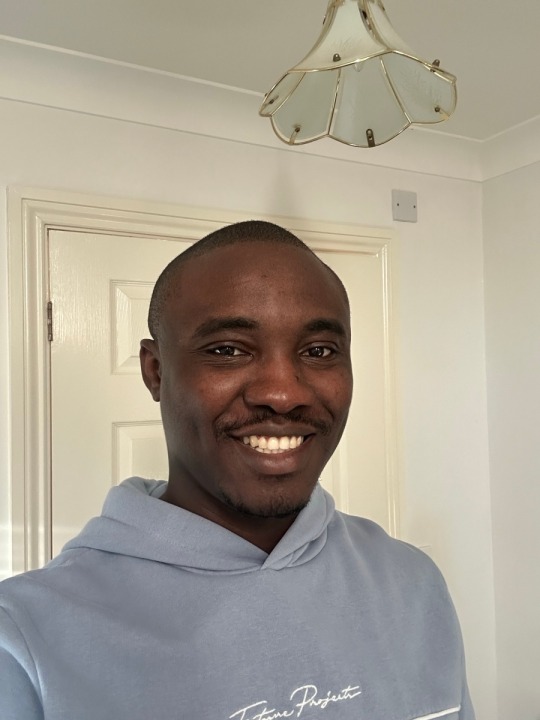
View On WordPress
0 notes
Text
I Need Your Help
Getting real on here for a min. I really appreciate anyone taking a few minutes to read this.
1.9 million children in the UK are currently struggling with talking and understanding words. (Speech and Language UK).
As of December 2023, 72000 children and young people are on the waiting list for speech and language services in the UK.
The demand for speech and language services are high whilst funding remains low leading to a substantial wait time to access these key services.
Imagine being told, as a parent, guardian, older sibling, aunt/uncle, grandparent, etc – “Your child needs speech and language therapy but you’re going to have to wait a year for it.”
And more than 4000 children have been waiting for over a year.
Speech and Language difficulties can impact on reading and writing abilities which has a knock-on effect onto all areas of education.
According to a report by Speech and Language UK, children who struggle to talk and understand words are:
• Six times more likely to be behind in English at age eleven
• Eleven times more likely to be behind in Maths at age 11
• Twice as likely to have a mental health problem
• Twice as likely to be unemployed as an adult
As a person who benefitted from accessing speech and language services with two brothers and a dad who also benefitted greatly, this is a matter I’m very passionate about. We were lucky that we were able to access the therapy, services and support we needed. It shouldn’t be a matter of luck.
Speech and language desperately needs more funding.
And it’s not just children. Adults can have speech and language conditions too and require the same access to speech and language services! Speech and language conditions are not limited to ones you are born with. Anyone, at any age, can acquire a communication condition. (Take Chris Kamara for example).
So any UK peeps reading this – please sign the petition below pushing for the government to increase their investment in speech and language services.
https://petition.parliament.uk/petitions/657935?fbclid=IwAR16E2RhkIBSQmpAAraOZWL6E2mTOuVbENCv2rgoYr8kFcnJdNf3HmS4ALM
#real talk#petition#speechandlanguage#speechandlanguagetherapy#aphasia#stutter#apraxia#dysarthria#speech sounds disorders#selective mutism#hearing loss#speech
0 notes
Text
Hot Teen Girl Camera Phone Sex
Me masturba mi mujer
All Natural Busty Babe Maggie Green Gets Fucked Hard in Body Stocking!
exposed wife
Cumming in Public on a Sybian in Canada Slutty Lesbian Choking and Touching
Piss drinking solo
Asian hottie enjoys wild pussy toying during hot gangbang
Beach ass in leggings
Big Titties Amateur Sex Tape
CHEATING WIFE SEDUCES HUGE COCK WITH HER FEET!!
#Certhia#phrasiness#chills#magnifiable#Farnham#Sarawan#epicardium#hermitlike#riot#Porsenna#massiest#supvr#headmen#azotous#dysarthria#meditatio#prognosed#bushgoats#lodgeable#koltunnor
0 notes
Text
Analyzing An Ataxic Dysarthria Patient's Speech with Computer Vision and Audio Processing
Hey everyone, so as you know I have been doing research on patients like myself who have Ataxic Dysarthria and other neurological speech disorders related to diseases and conditions that affect the brain. I was analyzing this file
with a few programs that I have written.
The findings are very informative and I am excited that I am able to explain this to my Tumblr following as I feel it not only promotes awareness but provides an understanding of what we go through with Ataxic Dysarthria.
Analysis of the audio file with an Intonation Visualizer I built
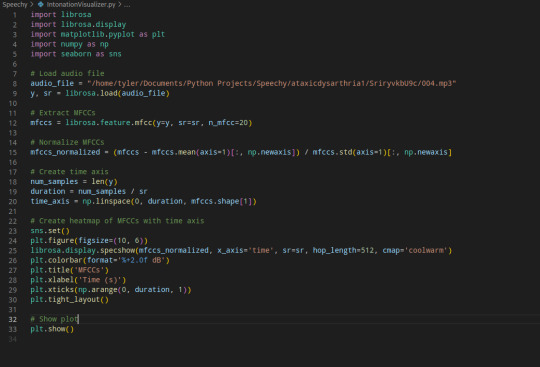
As you can tell this uses a heatmap to visualize loudness and softness of a speaker's voice. I used it to analyze the file and I found some really interesting and telling signs of Ataxic Dysarthria

At 0-1 seconds it is mostly pretty quiet (which is normal because it is harder for patients with AD to start their speaking off. You can notice that around 1-3 seconds it gets louder, and then when she speaks its clearer and louder than the patients voice. However the AD makes the patients speech constantly rise and fall in loudness from around -3 to 0 decibels most of the audio when the patient is speaking. The variation though between 0 and -3 varies quickly though which is a common characteristic in AD
The combination of the constant rising and falling in loudness and intonation as well as problems getting sentences started is one of the things that makes it so hard for people to understand those with Ataxic Dysarthria.
The second method I used is using a line graph (plotted) that gives an example of the rate of speech and elongated syllables of the patient.
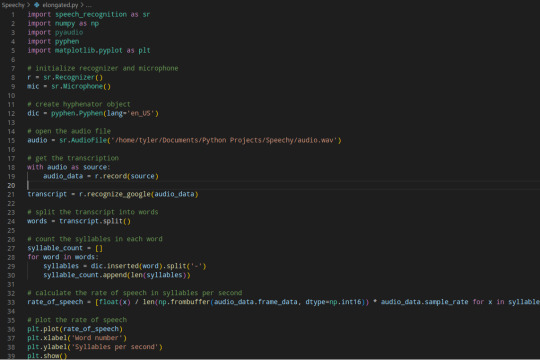
As you can see I primarily used the Google Speech Recognition library to transcribe and count the syllables using Pyphen via "hyphenated" (elongated) words in the speech of the patient. This isn't the most effective method but it worked well for this example and here is the results plotted out using Matplotlib:

As you can see when they started talking at first there was a rise from the softer speech, as the voice of the patient got louder, they were speaking faster (common for those with AD / and HD) my hypothesis (and personal experience) is that this is how we try to get our words out where we can be understood by "forcing" out words resulting in a rise and fall of syllables / rate of speech that we see at the first part. The other spikes typically happen when she speaks but there is another spike at the end which you can see as well when the patient tries to force more words out.
This research already indicates a pretty clear pattern what is going on in the patients speech. As they try to force out words, their speech gets faster and thus gets louder as they try to communicate.
I hope this has been informative for those who don't know much about speech pathology or neurological diseases. I know it's already showing a lot of exciting progress and I am continuing to develop scripts to further research on this subject so maybe we can all understand neurological speech disorders better.
As I said, I will be posting my research and findings as I go. Thank you for following me and keeping up with my posts!
#research#medical research#medical technology#speech pathology#speech disorder#neurology#ataxic dysarthria#ataxia#machine learning#artificial intelligence#ai#computer vision#audio processing#audio engineering#data analysis#data analyst#data science#python 3#python programming#python programmer#python code
38 notes
·
View notes
Text
ok wait apparently dysarthria is an uncommon side effect of one of my meds but it’s been going on for a little longer than i’ve been on them? maybe i’m remembering wrong idk.
7 notes
·
View notes
Text
Asha Clinic: Advanced Treatment for Dysarthria in Adults at New Delhi
Explore advanced dysarthria treatment techniques at Asha clinic new delhi. Our specialized approach aims to improve speech and communication, offering treatment for dysarthria in adults a comprehensive solution for a better quality of life. Trust our tailored care to enhance your communication skills and overall well-being.

#treatment techniques for dysarthria#treatment for dysarthria in adults#treatment and management of dysarthria#treatment for dysarthria.
1 note
·
View note
Note
Damn after all y’all been through he just dropped you like that?
technically he was prescribing me an FDA-illegal amount of xanax. like 6x time more than usually regulated. he literally had me prescribed to up to 6 mg a day when the usual prescription is .5-1 mg
so he didn’t wanna get sued if he continued to be my psych
#asks#i dont blame him#its pretty sad though#i developed dysarthria for a bit and can’t remember much the duration i took it
0 notes
Text
Explaining dysphagia
Dysphagia is simultaneously a symptom and a diagnosable condition. Most people think of it (if they think of it at all) as the choking on food disease but in reality it's much more complicated than that.
There are four categories of dysphagia: oropharyngeal, esophageal, esophagogastric, and paraesophageal
only two of those categories (oropharyngeal and esophageal) are commonly used and diagnosed so those are the main two I'll be talking about.
The diagnosis of dysphagia is a fairly complicated process involving a lot of radiological testing and things stuck up your nose and down your throat.
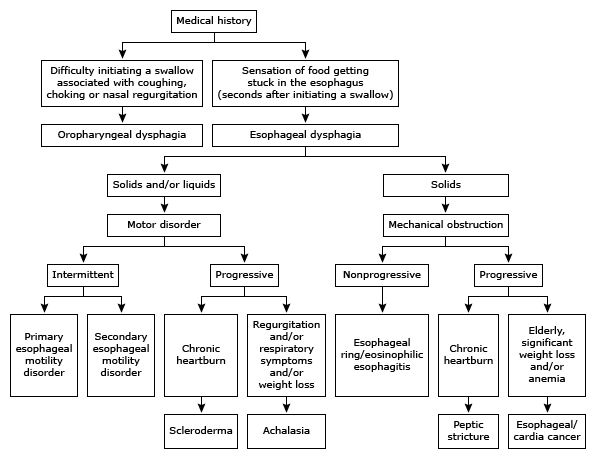
lost the source :(
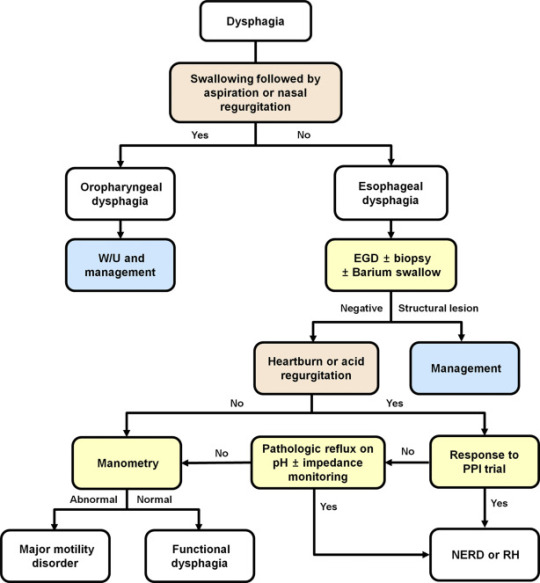
source
the ICD 10 further divides dysphagia into unspecified, oral phase, oropharyngeal phase, pharyngeal phase, pharyngoesophageal phase, and other dysphagia which includes cervical dysphagia and neurogenic dysphagia
Oropharyngeal dysphagia
Oropharyngeal dysphagia occurs when someone has difficulty initiating a swallow. It's often accompanied by coughing, choking, feeling food stick in the throat, and nasal regurgitation. Other symptoms include frequent repetitive swallows, frequent throat clearing, a gargly voice after meals, hoarse voice, nasal speech and dysarthria, drooling, and recurrent pneumonia.
Oropharyngeal dysphagia is diagnosed with a modified barium swallow and/or a transnasal video endoscopy.
Some of the consequences of oropharyngeal dysphagia include aspiration pneumonia, upper respiratory infections, and weight loss. Common treatment includes rehabilitative swallowing exercises, botox, surgery, and/or a feeding tube.
Esophageal Dysphagia
Esophageal dysphagia is dysphagia where there is a problem with the passage of food or liquids through the esophagus between the upper and lower esophageal sphincter. Esophageal dysphagia is usually a result of abnormal motility in the esophagus or a physical obstruction to the esophagus. Symptoms of esophageal dysphagia vary depending on cause.
Motility: People with esophageal motility disorders will experience problems with swallowing both liquids and solids. Motility disorders consist of abnormal numbers of contractions in the esophagus, abnormal velocity of contractions, abnormal force of contractions, abnormal coordinated timing of contractions, or several of these simultaneously. People with esophageal motility disorders may also experience spasms or chest pain.
Obstruction: People with an esophageal obstruction will have more difficulty swallowing solids than liquids.
Some symptoms of both include pain when swallowing, the inability to swallow, sensation of food being stuck in your throat or chest, drooling, and regurgitation.
Esophageal dysphagia can be diagnosed with a barium swallow, upper endoscopy, esophageal manometry, and an endoFLIP.
Some common treatments for esophageal dysphagia include medication, esophageal dilation, surgery, stent placement, and/or a feeding tube.
Esophagogastric Dysphagia
Esophagogastric dysphagia occurs when there is a problem with material passing from the lower esophageal sphincter into the gastric fundus.
Paraesophageal Dysphagia
Paraesophageal dysphagia occurs when the esophagus is narrowed due to extrinsic compression.
The ICD 10 Classifications
Oral phase - difficulty moving food or liquid to the back of the throat
Oropharyngeal phase - difficulty initiating swallowing
Pharyngeal phase - difficulty swallowing when food or liquid is at the top of the throat
Pharyngoesophageal phase - unable to find information
Other dysphagia- cervical dysphagia (caused by problems with the cervical spine) or neurogenic dysphagia (caused by problems with the central or peripheral nervous system)
Sources
x x x
+ some others I definitely (/sarcasm) didn't lose the link to
88 notes
·
View notes
Text
Here's to headmates who talk differently than the rest of the system!
Not everyone has distinct voices amongst system members, but there are plenty of people who do! Here's to them!
Shoutout to:
Headmates with regional accents (New Jersey, Canadian, Cockney etc.)
Sysmates with neurodivergency/disability/cultural accents (flat affect, Deaf accents, dysarthria, etc.)
People with first language accents when speaking their second/other language (Spanish accent when speaking English, etc.)
The ones with speech disorders, lisps, stutters, slurs, etc.
Those who are semi-verbal, hyperverbal, etc.
Those who use AAC boards, a sign language, etc.
And anyone else who just has an uncommon or unique way of communication!
We think it's absolutely lovely to have such a diverse way of being able to connect with others! Please don't let anyone ever shame you or make you feel bad for the way you talk to others, you're wonderful as-is!
🖤💜💙💚💛
#multiplicity#plural#pluralgang#plural affirmations#actually multiple#actually plural#requests#did#did osdd#uh idk how to tag this#accents#speech#speech disorder#aac board#sign language#semiverbal#nonverbal#neurodivergency
125 notes
·
View notes
Note
hi! long ask up next.
I'm not sure if this is the right blog for this question, i'm really sorry if it's not. I'm part of a theatre class/group that is putting on Shakespeare's Midsummer Night's Dream. The teacher has a very specific vision in mind that i generally vibe with. However, she's asking me to play a character in a way that might be offensive. I play two characters, one of them is Snug. There's a play within the play that an incompetent artisan theatre troupe is putting on, which snug is a part of. In our version, snug is meant to have a speech impediment (the teacher hasnt given me more specific directions on how to talk). I did a bit of research and decided that my version of snug has dysarthria (no dysphasia or aphasia) from a degenerative disease that he inherited from his dad. Im trying to play him as having distorsion and omission type articulation errors, in the initial and medial positions respectively, but it's been very hard for me to consistently play him like that becuase i dont have his disability. The only correction the teacher has given me so far is to speak slower so my dialogue is more comprehensible.
Now, i shouldn't have, but i did watch some scenes on youtube with snug in them. And none of the versions i saw give him a speech sound disorder, from what i could tell. What most versions do have in common though, is that the artisans who are putting on the play are, for lack of a better term, meant to be "dumb". Snug specifically has a line which i didn't realize was supposed to be a dig at his own intelligence until i saw a clip. The line is:
Have you the lion's part written? pray you, if it
be, give it me, for I am slow of study.
In the video i saw, the actor paused briefly after saying "slow", for emphasis:
for I am slow... of study.
I'm autistic and i know what it's like for people to assume i'm "slow" because of how i talk, and i don't want to promote those stereotypical views.
What makes this whole conundrum more complicated for me is that our version is going to be (sort of?) a musical. And my teacher is adamant on me rapping an eminem song. I thought this would be fun but thinking about it more carefully i worry that the joke might be that snug is faking his disability for some reason, and that he can actually speak "normally".
sorry if some of this isnt clear, english is not my first language.
Anon S
Hello! I wanted to address this ask as a former actor and current student studying speech language pathology as well as someone with an articulation disorder.
You can give a backstory in your head as detailed as you want - and as an actor this is a good thing, and something you should do with every role no matter how complicated or simple - but the unfortunate truth is most audience members are not going to interpret it exactly the same way without the same context. You may be thinking of portraying a mixed dysarthria (and there are many types of dysarthria, from spastic to flaccid to ataxic, to mixed that will all have difference in sound quality, articulation, and rate) but unless it's written somewhere the audience, who is just noticing a slow rate and articulation errors, and who may not even be aware of what dysarthria is, may think your character has some dialect or strange difference they don't recognize.
From my knowledge of the play, the Rude Mechanicals are meant to be laughed at and this falls into the idea that people with certain speech patterns or disorders are funny or silly or even, yes, stupider than others. However, there's not much you can do about this if your director is insistent other than refuse to treat your character as a joke. I would feel better about a character with consistent errors and whose disability was thought through than one who wasn't, even with a character like a Rude Mechanical.
As for a disability disappearing during a rap, for something like stuttering that would make sense but not for an articulation disorder and certainly not for dysarthria, which causes a slower rate normally and can cause articulation issues due to coordination of the parts used to speak (not only the mouth but also the soft and hard palates and the lungs, for example). I would talk to your director about what the point of the rap is - is it to be funny? is it to show another side of him? why does this character need a speech disorder? why does this character need to rap, and why does the speech disorder need to be dropped during the rap?
If you can talk with your director and figure out what the vision is for some honestly bizarre choices it may help you figure out if you're on the right track (and if dysarthria is the right choice for a disorder for your character, as well).
As always, if anyone has advice or input please feel free to add it!
43 notes
·
View notes
Text
Hello, this is Sina's mother!
Sina has asked me to reinforce, regarding her last two posts, that the term "nonverbal" does not refer to autism alone, but is much broader. People who cannot speak due to cerebral palsy are just as nonverbal as people who cannot speak due to dysarthria, or just due to autism.
In the case of dysarthria, speech comprehension can be developed absolutely normal, yet these people are officially nonverbal.
I'm supposed to make this very clear, because it makes no sense to say that here always the speech comprehension would be limited, precisely as the term "nonverbal" is not a pure autism term.
Sina seems to be quite fixated on it right now, which is why she kept signing that I should please clarify this again.
This text was originally in German and was copied into a translator, so if it sounds funny it's not me, but the translator :D
132 notes
·
View notes
Text
"There is a definite link between my physical energy and fatigue levels and my speech production and communication."
56 notes
·
View notes